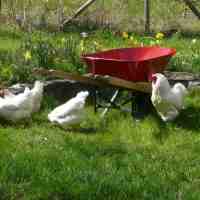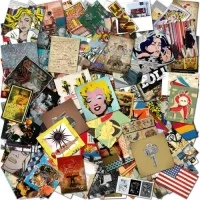 A story in the New York Times Magazine today is riveting: it tells of rural Afghan women who use poetry to express their anger and helplessness, often risking their lives in the process. The story centers around Zarmina, a girl of 17 (though she’s not sure — they don’t keep birth records of girls in her community), who set herself on fire when her parents refused to let her see the boy she loved. She died a week later. Zarmina showed signs of being a gifted poet, though what she did write down was destroyed by her father after her death.
A story in the New York Times Magazine today is riveting: it tells of rural Afghan women who use poetry to express their anger and helplessness, often risking their lives in the process. The story centers around Zarmina, a girl of 17 (though she’s not sure — they don’t keep birth records of girls in her community), who set herself on fire when her parents refused to let her see the boy she loved. She died a week later. Zarmina showed signs of being a gifted poet, though what she did write down was destroyed by her father after her death.
(See link at right, “Afghani women.”)
Afghan women mainly use the traditional folk form called the landai — a 2-line poem that can “cut like a knife.” Even shorter than haiku, this form probably developed because of its ease of memorization — which makes sense in a culture where few are schooled and women are forbidden to write or read poetry. The women and girls share their landai when they congregate for chores at the watering hole.
Zarmina once wrote:
My pains grow as my life dwindles,
I will die with a heart full of hope.
It’s interesting to me to consider the distinct difference between haiku and landai — haiku focusing mainly on nature and beauty, landai on anguish and despair. In some cases, women use landai to spout anger or ridicule, like this one noted in the article:
May your airplane crash and may the pilot die
that you are pouring bombs on my beloved Afghanistan
Over the years I’ve read about the horrific plight of Afghan women and girls, thousands who grow up in villages where they have no voice and no choice. A few years back, I wrote a poem responding to stories about mountain poppy farmers who are victimized by government-backed gangs. For a time, I had that poem posted here, but I’ve become more and more uncomfortable with it as it lacks authenticity — I am not an Afghan woman. I’ve never even been to Afghanistan.
However, I also wrote a follow-up poem that IS authentic — one that zeroes in on my experience of teaching poetry to a group of suburban American kids and using the poem I’d written about the family in Afghanistan. The poem is not very subtle, but it shows the reality of what I face with teenagers in my classes — the majority of whom are not at a place yet in their lives where they care much about the plight of any disadvantaged people on the other side of the planet. My poem was published online at The Teacher’s Voice a few years ago and is still up. Here is the web address. I’ve also linked the page to my LINKS list at the right. Let me know what you think of the poem in the COMMENTS section!





I also was touched and shocked to learn about Zarmina and the whole horror the afghan women face in some parts of their state. I plan to write a lamentation for her. will post it on poemhunter..com Saint Thomas is my Poetic name. I like way you wrote the poem above. 🙂
By: Thomas Dash on May 4, 2012
at 7:09 am
Thank you, Thomas. I’ll check out your site and read your lamentation for the women of Afghanistan.
By: poet kate hutchinson on May 4, 2012
at 4:55 pm
A few years ago, while living in Germany, I met a woman from Kabul, who had not been home for more than 15 years. She had not spoken with her mother for over 10 years of that time. She had a lovely face, beautiful dark hair and nice freckles. There was a serene resignation about her that I have not forgotten. She had a story to tell but had learned to keep it quiet.
It is an utter sadness that surrounds the entire Afghan culture for so many reasons. The treatment of women and girls is full of fear and shame. That no one person can have a voice, regardless of their gender, is but a comment on the extreme authority that both women and men must abide. I hope in my heart that Zarmina’s father and brothers were full of sorrow and guilt for the treatment of her; for surely, the society that houses them is brutal and unforgiving. The HUGE question is, how is it changed and where does it start. It has to begin by brave fathers, sons and brothers, husbands and boyfriends who will not loose face if their wives and mothers, daughters, and girlfriends begin to take joy and be noticed for their intelligence, art and words. Fathers must recognize that they will be made stronger and fearless the more they celebrate all of their children – boys and girls. Respect will follow.
In the west, we’re are only a few generations away from some serious misunderstandings and treatment of women, girls, children, ethnic minorities and others. Many of those situations have been based on insecurity and fear. It begins slowly and quietly – Change always begins at home. After all, words are power as mothers and fathers speak them to their CHILDREN. A culture based on fear is doomed by internal loathing.
By: Kay wegner on August 1, 2014
at 10:57 am
Thank you for this heartfelt post and story, Kay. I agree — it’s up to the men of these cultures to promote and allow the change, as they have all the power. Only when they realize that they will ALL benefit from having stronger women and girls will this happen. I fear it is a long time coming.
By: poet kate hutchinson on August 1, 2014
at 3:08 pm
[…] https://poetkatehutchinson.wordpress.com/2012/04/29/landai-the-afghani-womens-poetic-form/ […]
By: Le “poesie velenose” delle donne afghane | Parlaconlei on March 13, 2015
at 10:23 am